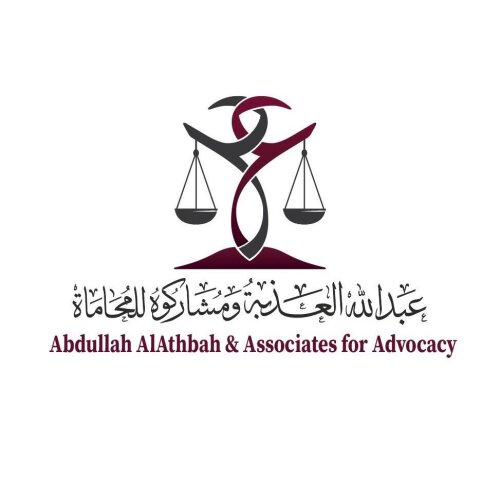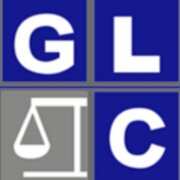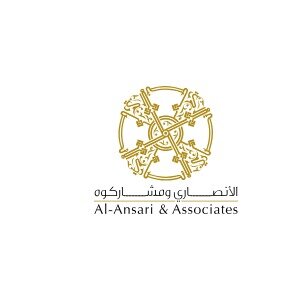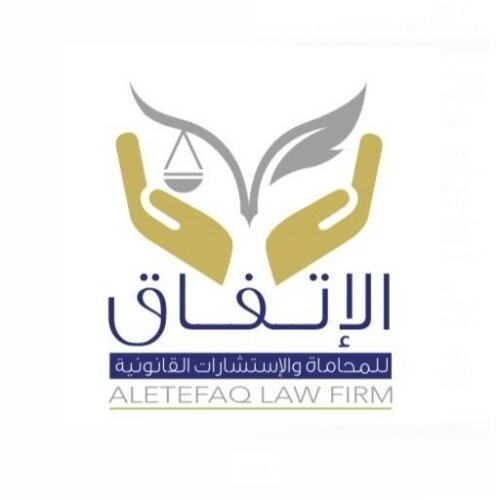Best Corporate & Commercial Lawyers in Doha
Share your needs with us, get contacted by law firms.
Free. Takes 2 min.
List of the best lawyers in Doha, Qatar
About Corporate & Commercial Law in Doha, Qatar
Corporate and commercial law in Doha, Qatar governs the formation, operation, and regulation of businesses as well as commercial transactions between entities and individuals. This area of law covers a wide range of activities such as starting a company, mergers and acquisitions, regulatory compliance, contract drafting and negotiation, joint ventures, franchising, intellectual property protection, dispute resolution, and more. The legal framework is a combination of Qatari laws, Islamic principles (Sharia), and, in certain districts like the Qatar Financial Centre (QFC), international legal standards. Understanding these rules is vital for anyone looking to do business in Qatar.
Why You May Need a Lawyer
Legal advice is essential when navigating the corporate and commercial landscape in Doha. Some common situations where you might require a lawyer include:
- Setting up a new business or company
- Reviewing or drafting commercial contracts or agreements
- Ensuring regulatory and licensing compliance
- Handling mergers, acquisitions, or restructuring of businesses
- Negotiating joint ventures or foreign investment partnerships
- Protecting intellectual property rights, such as trademarks and patents
- Managing employment-related matters within a business
- Resolving commercial disputes through negotiation, arbitration, or court proceedings
- Liquidating or dissolving a company
Given the complex and evolving nature of Qatari law, a specialized lawyer can help you mitigate risks, comply with local requirements, and safeguard your commercial interests.
Local Laws Overview
Qatar’s corporate and commercial environment is shaped by several important legal statutes and regulatory bodies. Some of the most relevant aspects include:
- Company Types: The Qatari Commercial Companies Law outlines the types of companies you can establish, such as Limited Liability Companies (LLCs), Joint Stock Companies (JSCs), Branches of Foreign Companies, and more.
- Foreign Ownership: Recent amendments allow up to 100 percent foreign ownership in most business sectors, provided approvals are obtained from the Ministry of Commerce and Industry (MOCI).
- Qatar Financial Centre (QFC): The QFC is an independent jurisdiction with its own legal and tax framework, making it attractive for international businesses.
- Licensing and Permits: All businesses must obtain the necessary licenses to operate in Qatar, including commercial registration and trade licenses.
- Contract Law: Contracts are governed by the Qatari Civil Code and, to some extent, Sharia law. Written contracts are highly recommended to avoid disputes.
- Dispute Resolution: Disputes can be resolved through Qatari courts, arbitration (often under the Qatar International Court or international bodies), or mediation.
- Employment Law: The Qatar Labour Law regulates employment contracts, benefits, termination, and related matters for businesses operating in Qatar.
- Anti-Money Laundering and Compliance: Companies must comply with anti-money laundering regulations and other compliance standards set by authorities.
It is vital for anyone engaging in business in Doha to familiarize themselves with these legal frameworks to ensure smooth establishment and operation of their commercial entities.
Frequently Asked Questions
What are the main types of companies I can start in Qatar?
You can choose from several company structures such as Limited Liability Company (LLC), Joint Stock Company (JSC), Branch of a Foreign Company, or Sole Proprietorship. The type of company you select will affect ownership, liability, and reporting requirements.
Can foreigners own 100 percent of a business in Qatar?
Yes, following recent legal reforms, non-Qataris can own up to 100 percent of businesses in most sectors, but some restrictions and approval processes may still apply depending on the nature of your business.
What is the process for registering a business?
The general steps include reserving a trade name, obtaining commercial registration from the Ministry of Commerce and Industry, securing a trade license, and registering for tax and social security if applicable. The process may vary for entities based in the Qatar Financial Centre.
Are contracts in Qatar required to be in Arabic?
While contracts can be drafted in any language, an Arabic version is usually required for official purposes and may take precedence in court. It is best to ensure an accurate translation is prepared.
How are commercial disputes resolved in Qatar?
Most commercial disputes are handled either in the Qatari courts or through arbitration. The Qatar International Court and Dispute Resolution Centre, as well as other arbitration institutions, offer alternative dispute mechanisms.
What is the corporate tax rate in Qatar?
Corporate income tax is generally 10 percent of a company's taxable income sourced in Qatar for foreign-owned companies. However, tax rates and exemptions may apply for entities in the Qatar Financial Centre or certain free zones.
Is it necessary to have a local Qatari partner?
A local partner was traditionally required to hold at least 51 percent ownership in many business types. However, this restriction has been eased in most sectors, with some exceptions for businesses of strategic importance.
Do I need separate licenses for each business activity?
Yes, you must clearly specify all intended business activities during registration, and separate licenses may be required for certain regulated activities.
How can I protect my intellectual property in Qatar?
You should register your trademarks, patents, and copyrights with the relevant Qatari authorities to protect your intellectual property rights. Legal recourse is available for infringement.
Are there special free zones for foreign investors?
Yes, Qatar offers several free zones, such as the Qatar Financial Centre and Qatar Free Zones, where foreign investors can benefit from relaxed ownership rules, tax incentives, and streamlined setup processes.
Additional Resources
If you are seeking more information or support regarding corporate and commercial law in Qatar, consider the following resources:
- Ministry of Commerce and Industry (MOCI) - Main body for company registration and business regulations
- Qatar Financial Centre (QFC) - Independent jurisdiction with its own legal and regulatory environment
- Qatar Chamber of Commerce and Industry - A resource for business owners and investors
- Qatar International Court and Dispute Resolution Centre - Dispute resolution for commercial and investment matters
- Intellectual Property Rights Protection Department - For IP registration and enforcement
- Local legal firms specializing in corporate and commercial law
Next Steps
If you need legal assistance in corporate and commercial matters, it is recommended to:
- Identify your specific legal needs and gather relevant documents or background information
- Consult a qualified legal expert with experience in Qatari corporate and commercial law
- Request an initial consultation to assess your requirements and receive tailored advice
- Confirm your lawyer's credentials and area of specialization
- Clarify fees, timelines, and your involvement in the process
- Maintain open communication with your legal advisor throughout your business activities in Qatar
Timely legal advice can help you confidently navigate the evolving corporate landscape in Doha and ensure your enterprise’s compliance, growth, and long-term success.
Lawzana helps you find the best lawyers and law firms in Doha through a curated and pre-screened list of qualified legal professionals. Our platform offers rankings and detailed profiles of attorneys and law firms, allowing you to compare based on practice areas, including Corporate & Commercial, experience, and client feedback.
Each profile includes a description of the firm's areas of practice, client reviews, team members and partners, year of establishment, spoken languages, office locations, contact information, social media presence, and any published articles or resources. Most firms on our platform speak English and are experienced in both local and international legal matters.
Get a quote from top-rated law firms in Doha, Qatar — quickly, securely, and without unnecessary hassle.
Disclaimer:
The information provided on this page is for general informational purposes only and does not constitute legal advice. While we strive to ensure the accuracy and relevance of the content, legal information may change over time, and interpretations of the law can vary. You should always consult with a qualified legal professional for advice specific to your situation.
We disclaim all liability for actions taken or not taken based on the content of this page. If you believe any information is incorrect or outdated, please contact us, and we will review and update it where appropriate.
Browse corporate & commercial law firms by service in Doha, Qatar
Doha, Qatar Attorneys in related practice areas.

















